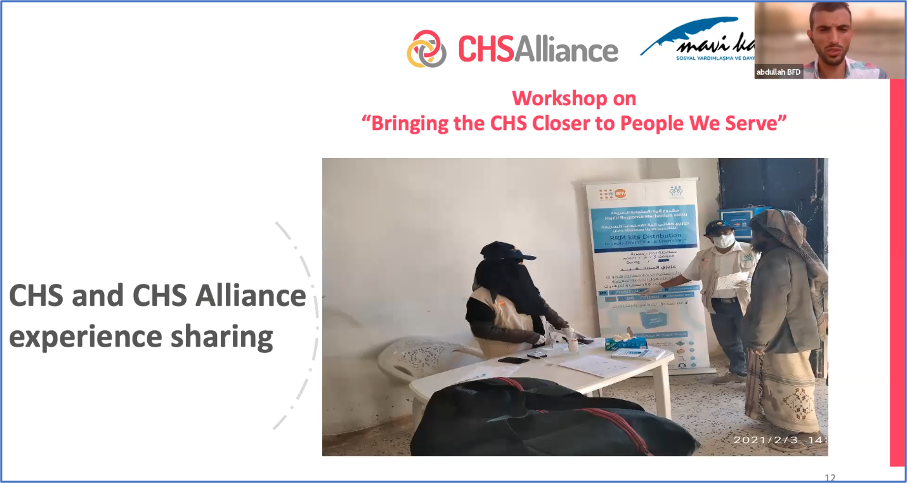Increasing trust through applying the CHS in Yemen
After speaking at the CHS Alliance and Mavi Kalem hosted workshop for Turkish NGOs on “Bringing the CHS closer to the people we serve”, I want to share Building Foundation for Development’s experience learning from undertaking a CHS self-assessment to strengthen our programmes in Yemen.
Building Foundation for Development (BFD) is a not for profit, non-governmental, Yemeni and community-based developement & humanitarian organisation. At the beginning of 2020, we started working with European donors and OCHA’s Yemen humanitarian fund. These donors were heavily focused on implementing the commitments of the Core Humanitarian Standard on Quality & Accountability (CHS) throughout the humanitarian projects being carried out in Yemen at the time.
Due to this encouragement from donors, we learned about the CHS and the difference it could make for the people we work with and for. This greatly motivated us to join fellow organisations who were using the CHS to improve the quality of the aid they delivered to those in Yemen living through both war and natural disasters.
Once we became familiar with the CHS, we joined CHS Alliance and immediately started to complete a validated CHS self-assessment. The self-assessment process really helped us to identify gaps in how well we were implementing the CHS. With support from the Alliance, we developed an action plan for how to close these gaps and get on the right track to better meet all Nine Commitments of the CHS.

Abdullah speaking at a recent online workshop for Turkish national NGOs.
Since then, we at BFD have been following our action plan and are applying the CHS throughout our project lifecycles. Some examples of the changes we’ve made as a result of our CHS verification are:
- Produced an accountability Standard Operations Procedures Manual.
- Designated a person responsible for responding to complaints.
- Developed a Feedback and Complaints Mechanism and Policy.
- Established a toll-free hotline number.
- Developed a data analysis and quality control system.
- Incorporated an online electronic systems to swiftly review indicators and interventions.
- Started a quality control department.
- Created a lesson learned register and database.
We have also contracted third party companies to help our partners implement CHS Commitments in their own work too.
“Most importantly by applying the CHS we’re seeing those we serve are becoming happier with our work. I’d like to share a current example: we noticed a big difference in the satisfaction rates reported by those we were assisting. In Marib the percentage increased from 40% of people saying they were satisfied with us in mid 2020 to 90% in January 2021! This in turn contributed to us gaining trust from donors and the local authorities.”
Applying the CHS through a verification has also greatly contributed to raising the ceiling of funds for BFD. For instance, after we were evaluated as applying the CHS well during a project in Marib, the donor provided us with triple the previous grant amount for the next part. We also noticed other groups we worked with, such as the Executive Unit, the Local Council and the project’s community committees in Al-Jufaina camp had higher levels of confidence in us, which helped to access more people who needed our support and facilitated us putting in place new project procedures.
Finally, it’s worth mentioning that the cooperation of CHS Alliance members and their speed providing us with advice and support greatly helped with making changes to better meet the CHS Commitments. It also made us appreciate being a part of this network.
Find out more about CHS verification options or becoming a member of CHS Alliance.
For more information about our work to bring the CHS closer to people affected by crises, please get in touch with Senior Advisor on CHS and Outreach, Bonaventure Sokpoh.
